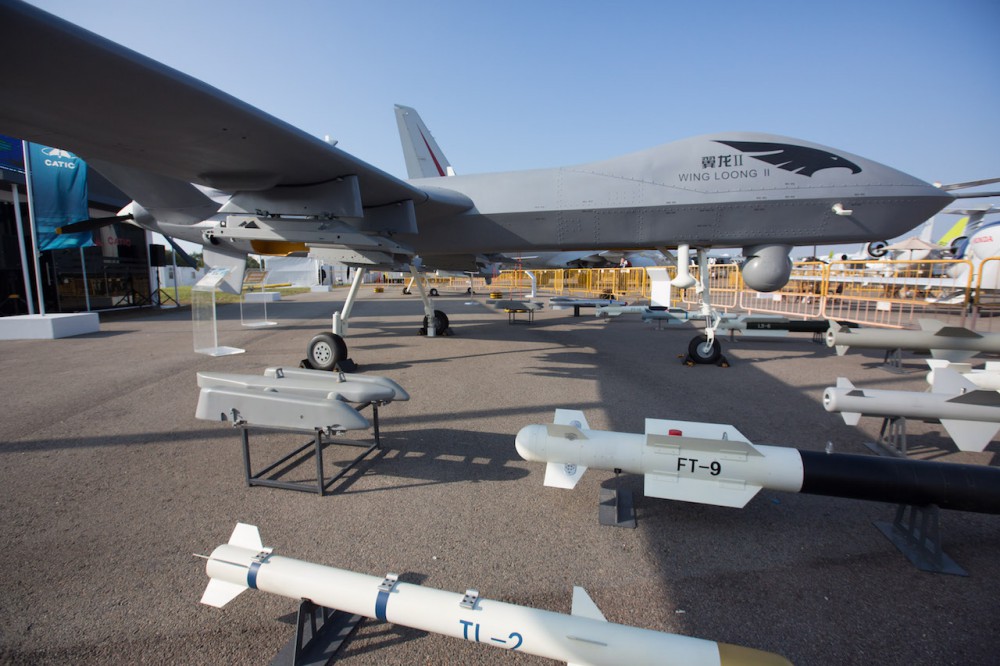China to supply 4 attack drones to Pakistan, prompts India to revive Predator-B plan. China has already been selling the reconnaissance and strike drone Wing Loong II to several countries in Asia and West Asia.
China is in the process of supplying four armed drones to Pakistan, ostensibly to protect the China-Pakistan Economic Corridor and the People’s Liberation Army Navy’s new base at Gwadar port, according to people familiar with the development said on Sunday.
Gwadar, in the highly restive southwestern province of Baluchistan, is described as the crown jewel of China’s $60 billion investment in Belt and Road Initiative projects in Pakistan.
The supply of two systems (each has two drones and a ground station) comes ahead of Beijing’s plan to jointly produce 48 GJ-2 drones, the military version of Wing Loong II, designed in China for use by Pakistan’s air force.
China has already been selling the reconnaissance and strike drone Wing Loong II to several countries in Asia and West Asia and emerged as the largest exporter of armed drones. According to the Stockholm International Peace Research Institute (SIPRI) arms transfer database, China had delivered 163 UAVs to a dozen-odd countries including Kazakhstan, Turkmenistan, Algeria, Saudi Arabia and United Arab Emirates from 2008 to 2018.
Unlike the US that follows an elaborate process to determine and regulate the end-use of its high-end weapons, China has no such qualms.
China’s attack drone, said to be armed with 12 air-to-surface missiles, are currently being used by UAE-backed forces in Libya against the Turkish-backed government in Tripoli with limited success. Four of them were shot down in the last two months in Libya, according to data compiled by non profit Drone Wars UK.
China’s aggressive postures in Ladakh where the two armies are engaged in a standoff that has lasted two months and its supply to Pakistan has prompted India to conveyed to the US its renewed interest in the medium-altitude long-endurance (MALE) armed Predator-B drone, which not only collects intelligence through surveillance and reconnaissance but also locates and destroys the target with missiles or laser-guided bombs.
The Indian Navy has been in negotiations with the US for its unarmed naval variant, but national security planners feel that due to the prohibitive cost of the UAV, it would be better to have an all-in-one drone rather than separate ones for surveillance and targeting. Also called the MQ-9 Reaper, the armed remotely piloted aircraft is battle-proven in the Iraq, Afghanistan and Syrian theatres with the capability of carrying four Hell-Fire missiles and two 500 pounds of laser-guided bombs.
For the future, Indian private sector companies on the outskirts of New Delhi are in the process of developing medium-altitude long-endurance drones for India. But the capacity to acquire armed drones within the country is some distance away. The Defence Research and Development Organisation also has plans to produce the Rustom drone prototype by the end of this year.
Source: Hindustan Times

